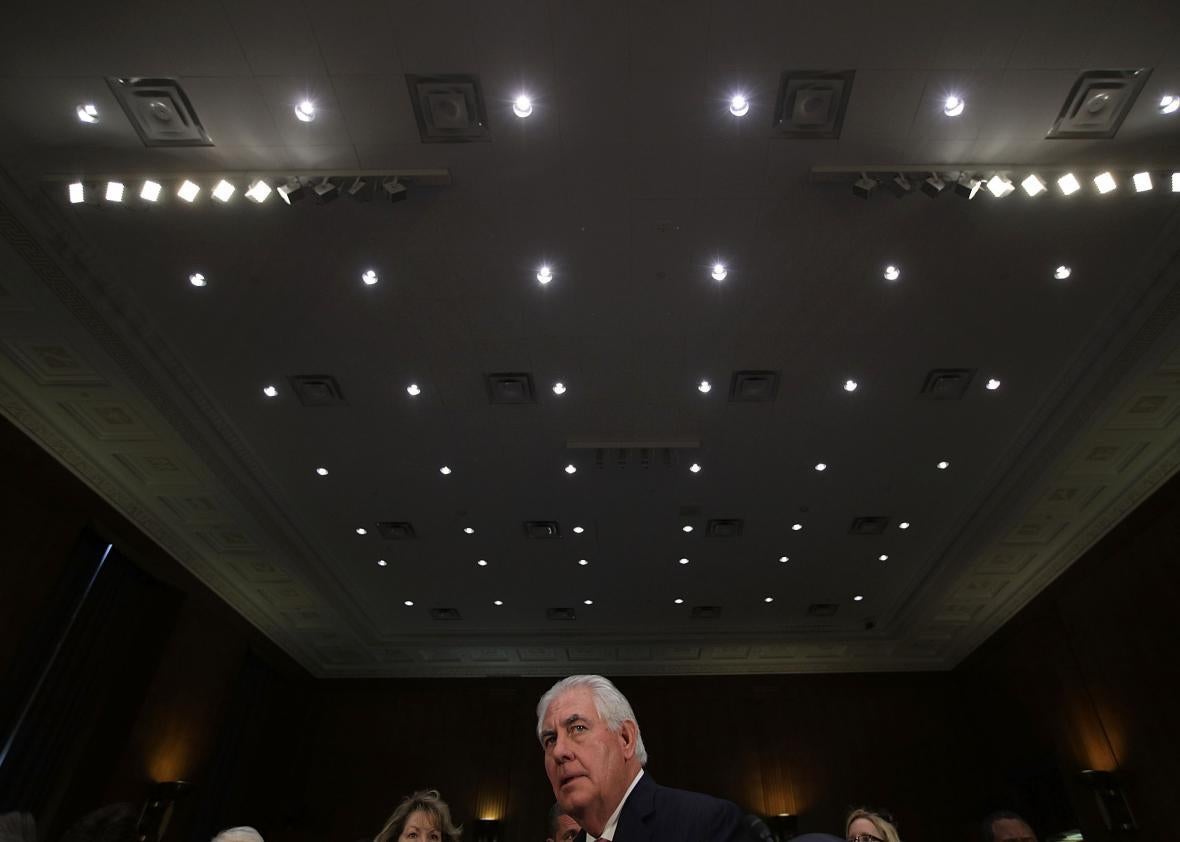Only one reporter is accompanying Secretary of State Rex Tillerson on his trip to Asia this week: Erin McPike of the conservative site Independent Journal Review. Media outlets have been griping for days now about Tillerson’s decision not to bring the traditional pool of 10 or more reporters on the trip, and the choice of bringing just one journalist from a presumably friendly outlet is not exactly smoothing things over. Reuters also notes that McPike does not appear to be filing the pool reports that reporters traveling with the secretary typically file to inform colleagues about his activities.
Media outlets have a right to be upset about this. Big, unexpected news can happen when the secretary of state travels abroad. Think of Chinese dissident Chen Guangcheng trying to flee Beijing on Hillary Clinton’s plane in 2012, or the offhand remark by John Kerry in 2013 that may have inadvertently prevented U.S. airstrikes on Syria.
The State Department also typically wants reporters there to record the secretary’s meetings with foreign governments. If nothing else, it demonstrates that he’s doing his job. But Tillerson’s State Department has been remarkably opaque and press-shy. Nearly two months in, his views and plans are still mostly a mystery. The secretary hasn’t given any interviews since taking over and has skipped a number of high-profile events, including the release of the department’s annual human rights report on March 3—something the secretary would customarily attend. The department’s acting spokesperson didn’t give a press conference until March 6.
This has added to the widespread impression that the department, whose budget the White House reportedly plans to cut by as much as 37 percent, is a nonentity in this administration. Tillerson still has no deputy—the White House reportedly blocked his choice—and he doesn’t seem to have much influence over a foreign policy crafted mostly by close Trump advisers like Steve Bannon and Jared Kushner. Major foreign policy initiatives, such as they exist in this administration, seem to have been taken away from the department. For instance, lawyer-turned-envoy Jason Greenblatt—who’s been tasked with a ludicrously broad portfolio that apparently includes negotiating peace in the Middle East as well as Cuba policy and international trade deals—reports not to Tillerson but to Kushner.
Tillerson is also coming off a rough couple of days following allegations that he used a secondary email alias to discuss climate change while he was CEO of Exxon Mobil. Given his bad publicity and what appears to be a lack of any real influence over the administration’s foreign policy, maybe he figures that staying quiet is the best option.
